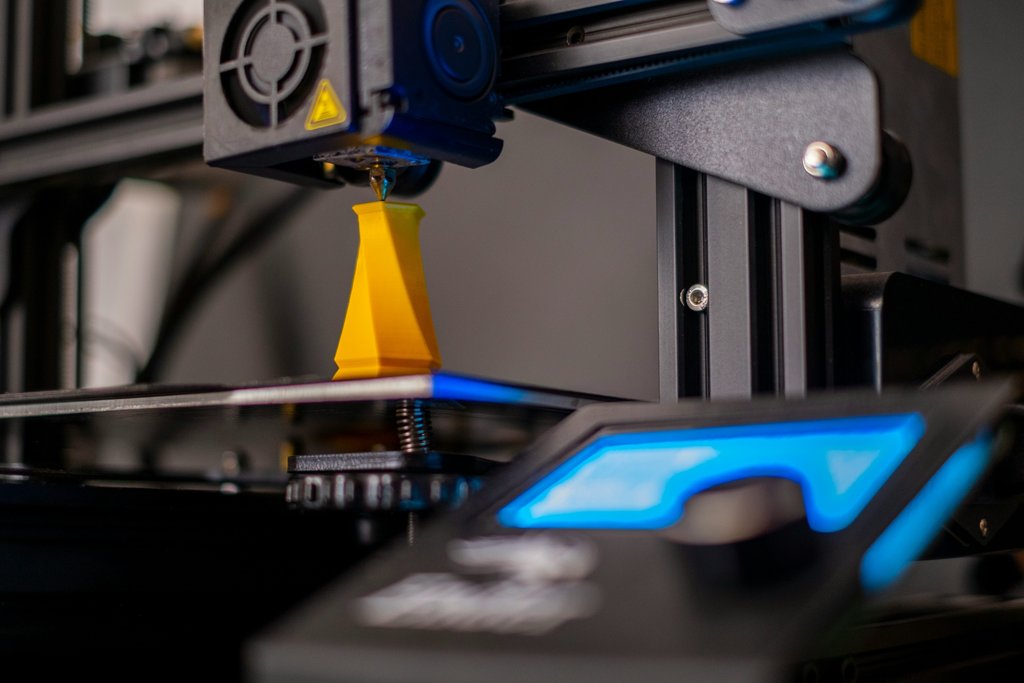Every day you open your feed and you get like 20 messages talking about how AI is going to change the future. No industry is more excited than the software industry. "This is like the invention of fire", says Sundar Pichai of Google. They say software development will be completely transformed by AI. Working with some of the best engineers I know at Frappe, I am always curious about what they have to say about AI. A few of them are definitely enamoured. It helps you learn new libraries fast, code completions are magical, it can assist you in writing complex database queries and regular expressions. Most find AI helpful in code completion but no one has successfully vibe-coded anything serious - though they have vibe-coded some simple front-ends for prototyping. (Vibe coding is letting AI write almost all of the code by only giving instructions).
Maybe 20 years ago, another technology had promised something similar in manufacturing. There are three basic categories of discrete manufacturing - reductive (where you reduce the material to get your desired shape), additive (where you add material) and remaking (where you reform the material). Most of the manufacturing in the world is reductive, where you shave off material by cutting, drilling, milling etc. You can also reform material by casting (melting it into liquid and recreating it in a mould) or forging (beating it into shape by compression). Building objects by “additive” methods has been notoriously hard until a new technology driven by electronics came in called “rapid prototyping” or “3d printing”. 3d printing was supposed to revolutionise manufacturing and design until it did not.

3d printing Picture credits
Recently I was having a chat with a veteran of 3d printing business, Manoj Pillai, who finally ended up disillusioned by his domain. In his own words
"Back in 2016, I was sold to the idea that 3D Printing is the Holy Grail of manufacturing, come 2025, I see neither light nor smoke. Manufacturing as a business is $2 Trillion overall and 3D printing is around $23 billion. In my last 9 years of association with 3D printing, I did not see an Industrial 3D printing solution or company that will scale and sustain by itself to reach even $1 billion in Revenue.
This is not to say that 3D printing is a bad idea, it is good for the use cases and the right application, tooling, customisation, education, R&D, art, models, trophies, low volume production etc. Setting expectations of it replacing conventional manufacturing is where the problem comes.
Many 3D companies made growth trajectories and projections similar to Google or other IT companies. When the realisation that product development and actual manufacturing does not follow that quick / hyper growth as in the software industry the story starts disintegrating. In addition when the customers don't receive half of what was being promised, there is no base of value delivery that companies can fall back into. Executives realise that they were riding on a wave of promises and when the promises are not kept there is nothing to show. Having said that, the non industrial 3D printing sector is thriving and is growing into a profitable business model, making entrepreneurship an easy and achievable target for many young, innovative and bright minds out there.
What if the 3D printing companies stopped writing articles and publish case studies using the words “Revolutionising Manufacturing” or “The Future is Printed”. Honestly these words have stopped conveying any meaning to me, or rather it creates an anger or hatred because of the over usage of futile terms. I used to wonder where the money for this mumbo jumbo marketing was coming from. Maybe many VCs made a lot of money which should be burned somewhere to complete the karmic cycle."
I guess not all VCs made money, many would have definitely lost, other than those who were able to “dump” the investment to other unsuspecting buyers.
There might have been several reasons why 3d printing failed, maybe it was slow and expensive, maybe the materials were not good enough, maybe the finish was hard to get, maybe the strength of the components was not up to the required standards. But maybe people did not realise that manufacturing has to be highly accurate and efficient. Something that was mastered over decades of engineering using standard machines could not be done easily by additive manufacturing. Forging changes the lattices of the molecules to deliver extra ordinary strength, maybe you need “compression” to achieve such quality.
Today maybe we are in a similar stage with the AI technology. It is showing lot of promise. On the outside, it can make “applications” that look similar to production applications. Most engineers know that there are two parts of building high quality software products, the first 90% that happens fast and the other 90% that takes ages. One engineer I knew told me, “I can make this feature in 2 hours, but then I will spend the next 2 weeks debugging it”. The hard part of good software is probably not “making it”, but making it so that it is robust and error proof so that it handles all kinds of user input and scale.
Just like the early days of 3d printing, there is a lot of hype surrounding the technology. VCs and founders of AI companies are urging people to stop learning to code. There seems to be a “trillion dollar” opportunity to remake “white collar jobs” and startups should drop everything and look into AI. A lot of it feels like empty hype.
Maybe I am wrong and the world will definitely change forever. AI will not end up a “promise” just like 3d printing, but an actual thing that will make machines even more pervasive in our lives. But my gut definitely tells me that the impact of AI in software will be more an incremental change than a revolutionary one. It will reduce some grunt and assist us in some complex tasks, make prototyping more accessible to non developers, but its impact is grossly over-rated. Either ways, interesting times ahead.
--
Special thanks to Manoj Pillai for sharing his opinion on the industry.




·
The "invention of fire"? Really? This expression is upsetting by its utter lack of humility and knowledge of reality. Can anybody ascertain the fire was INVENTED? Did google invent the Sun, the Stars, the Universe, thunderstorms and the fire which burned forests for AGES, prompting evolution products like cork for better protecting trees and allowing them to re-sprout afterwards, or innate bee behavior to flee smoke which is used by beekeepers all over the world for managing bees producing honey? No wonder AI is hallucinating like under the influence if build by people with such superficial a grasp on nature, evolution and humanity. Dear Rushab, I wholeheartedly commend so much of your writing by its unwavering curiosity about what makes humans and technology in society tick and by your implicit metaphysical approach underlying the clarity of your insights in so many things. Wonderful! Your's sincerely, and all the Best!
·
Nice Blog but there is bug on your like section of POST